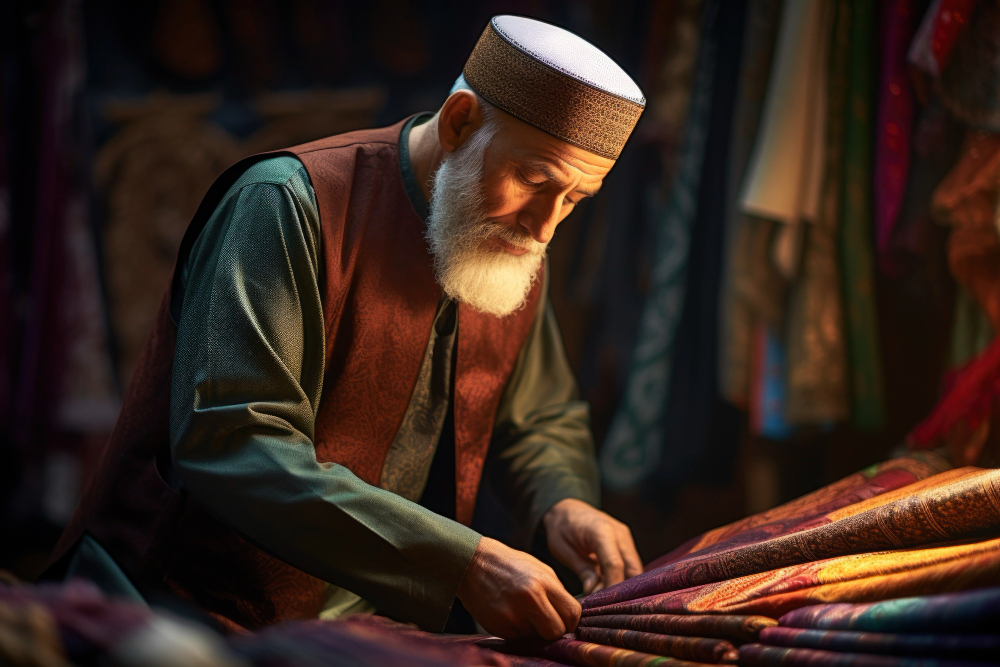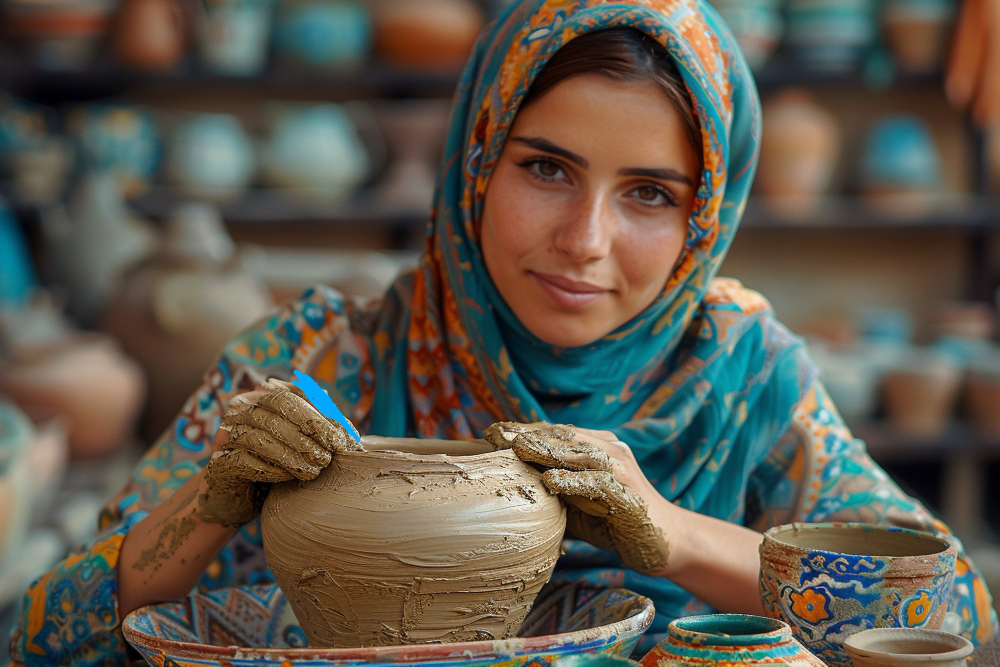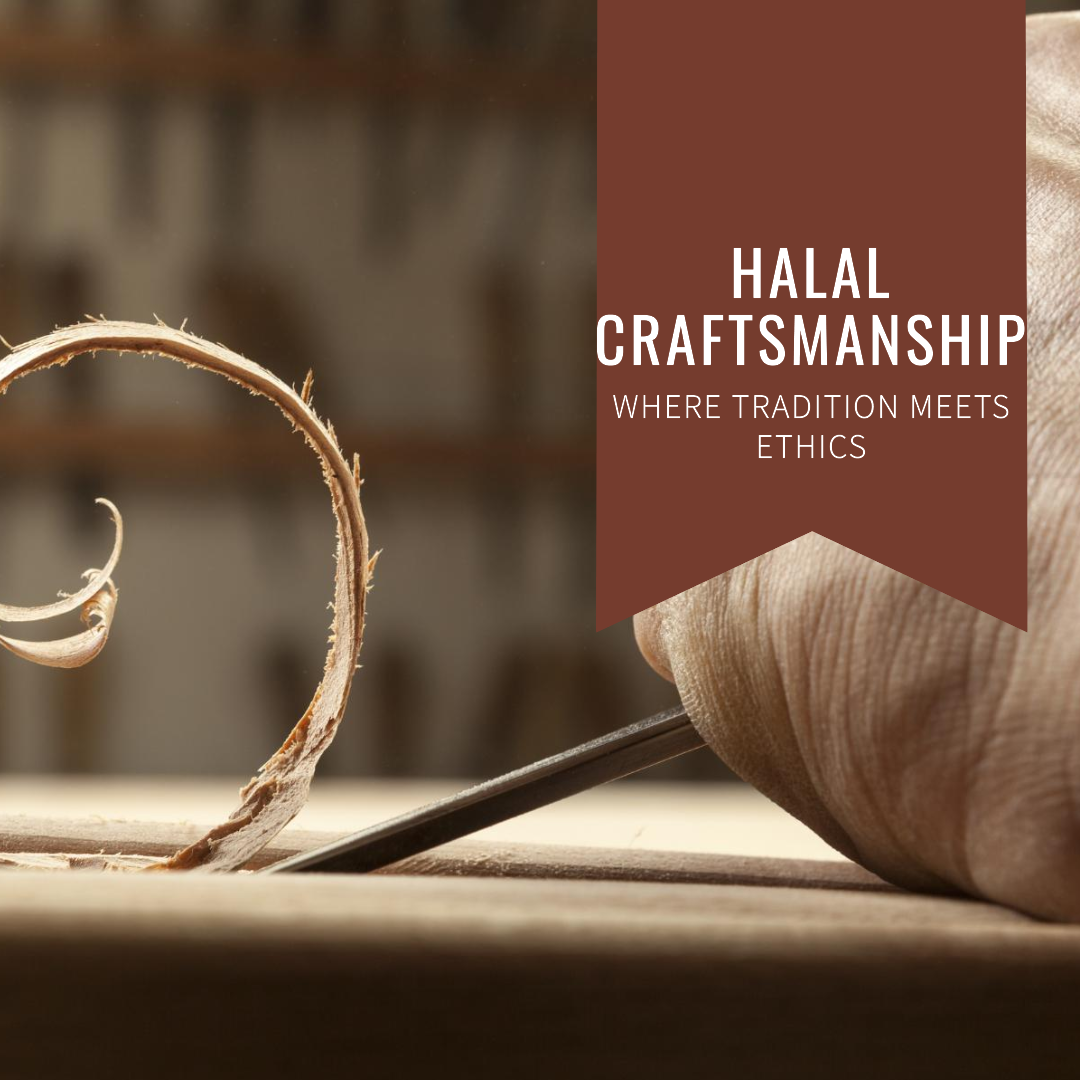In a world that increasingly values sustainability and ethics, the concept of Halal craftsmanship stands out as a beacon of tradition and integrity. Halal craftsmanship goes beyond the simple act of creating goods; it embodies a commitment to ethical principles rooted in Islamic teachings. This form of artistry not only respects the environment and human dignity but also preserves age-old techniques passed down through generations. In this article, we’ll take you on a journey through the world of Halal craftsmanship, exploring how traditional crafts align with Halal principles and showcase the beauty of ethical goods.
The Essence of Halal Craftsmanship
At its core, Halal craftsmanship is about more than just creating objects—it’s about infusing every step of the process with a sense of responsibility and spirituality. The materials used, the methods employed, and the treatment of artisans are all governed by principles that ensure the final product is not only beautiful but also ethical and Halal-compliant.
Imagine a craftsman in a bustling Moroccan souk, meticulously hand-weaving a rug using wool that has been ethically sourced and dyed with natural, Halal-approved colors. Each knot is tied with precision, as the craftsman recites prayers, invoking blessings upon his work. The finished product is not just a rug—it’s a piece of art that reflects a deep connection to faith, tradition, and ethical values.
Background: Halal craftsmanship is deeply rooted in Islamic traditions, where the creation of goods has always been intertwined with moral and ethical guidelines. This ensures that the products are made in a manner that is respectful to both people and the environment. In regions like Morocco, Turkey, and Indonesia, these traditions have been preserved and continue to thrive in today’s global market.
Tip: When shopping for Halal-crafted goods, look for certifications or assurances that the products have been made according to Islamic ethical standards. This not only supports artisans who adhere to these principles but also ensures that you’re purchasing items that align with your values.
Traditional Crafts That Adhere to Halal Principles

One of the most remarkable aspects of Halal craftsmanship is the diversity of traditional crafts that adhere to these ethical principles. From textiles to ceramics, each craft carries with it a rich history and a commitment to Halal values.
Moroccan Rugs: Handwoven Moroccan rugs are among the most sought-after Halal-crafted goods in the world. These rugs are made from wool that is sourced in a way that ensures the animals are treated humanely, and the dyes used are derived from natural, Halal-approved sources. The intricate designs often feature geometric patterns that have deep symbolic meanings, reflecting Islamic art’s emphasis on harmony and balance.
Turkish Ceramics: The art of ceramic-making in Turkey dates back centuries and is renowned for its vibrant colors and intricate patterns. Traditional Turkish ceramics are made using natural clay and glazes that are free from harmful chemicals, adhering to Halal principles. Each piece is hand-painted by skilled artisans, often depicting floral motifs and Quranic calligraphy, making them not only functional but also spiritually meaningful.
Indonesian Batik: Batik, a traditional textile art from Indonesia, is a prime example of Halal craftsmanship in fashion. The process of making batik involves waxing and dyeing fabric in patterns that are both complex and beautiful. The dyes used in Halal batik are natural and free from synthetic chemicals, ensuring that the final product is pure and ethical. The motifs often tell stories from Islamic history or represent moral values, making each piece a wearable work of art.
Background: Traditional crafts like these are not just about creating beautiful objects—they are about preserving cultural heritage and ensuring that the methods used are in harmony with Islamic values. Artisans who practice Halal craftsmanship often see their work as a form of worship, a way to honor their faith through the meticulous creation of goods that are both functional and spiritually enriching.
Tip: Support artisans who practice Halal craftsmanship by purchasing their products directly or through fair trade organizations. This not only helps preserve these traditional crafts but also ensures that the artisans are compensated fairly for their work.
The Ethical Dimension of Halal Craftsmanship
Halal craftsmanship is inherently ethical, as it requires adherence to principles that ensure respect for people, animals, and the environment. This includes fair treatment of workers, humane sourcing of materials, and the use of sustainable practices throughout the production process.
Consider a leatherworker in Turkey, crafting a Halal-certified handbag. The leather used is sourced from animals that have been slaughtered according to Islamic rites, ensuring that the process is humane and respectful. The tanning process avoids harmful chemicals, using traditional methods that are safer for both the environment and the workers. The leather is then hand-stitched into a beautiful, durable bag that not only serves a practical purpose but also represents the ethical standards of Halal craftsmanship.
Background: The ethical dimension of Halal craftsmanship extends beyond the product itself. It encompasses the entire supply chain, from the sourcing of raw materials to the treatment of workers. In many Islamic cultures, the act of crafting is seen as a form of worship, and therefore, the process must be carried out with the utmost care and respect for all involved.
Tip: When purchasing goods, inquire about the production process to ensure that it aligns with Halal principles. Understanding where your products come from and how they are made can deepen your appreciation for Halal craftsmanship and its commitment to ethics.
Preserving Tradition Through Halal Craftsmanship

In a world where mass production and fast fashion often dominate, Halal craftsmanship serves as a reminder of the importance of tradition and sustainability. These artisanal practices are not just about creating goods—they are about preserving cultural heritage and passing down skills from one generation to the next.
Think of a family of potters in Fez, Morocco, who have been crafting ceramics for centuries. Each generation learns the art from the one before, ensuring that the techniques and values are preserved. The family takes pride in their work, knowing that each piece they create is a reflection of their faith and their commitment to ethical practices. The pottery they produce is not only beautiful but also serves as a tangible link to their cultural and religious heritage.
Background: In regions like Morocco, Turkey, and Indonesia, traditional crafts are an integral part of the cultural landscape. Halal craftsmanship plays a crucial role in preserving these traditions, ensuring that they are passed down through generations and remain relevant in the modern world. By adhering to Islamic ethical principles, these artisans keep their cultural heritage alive while also contributing to a global market that increasingly values sustainability and ethics.
Tip: When traveling, seek out local artisans who practice Halal craftsmanship. Purchasing directly from them not only supports their work but also allows you to bring home a piece of their culture and heritage.
Summary
Halal craftsmanship is a celebration of ethical principles, tradition, and artistic expression. By choosing Halal-crafted goods, you are not only supporting artisans who adhere to Islamic values but also embracing a lifestyle that values sustainability, fairness, and cultural heritage. Whether it’s a handwoven rug from Morocco, a piece of Turkish pottery, or a beautifully dyed batik from Indonesia, each Halal-crafted item tells a story of tradition, ethics, and artistry. As the world continues to move towards more ethical consumption, Halal craftsmanship stands out as a shining example of how goods can be made with care, respect, and a deep sense of responsibility.
Halal Craftsmanship FAQs
What is Halal craftsmanship?
Halal craftsmanship refers to the creation of goods that adhere to Islamic ethical principles. This includes using materials that are Halal, ensuring fair treatment of workers, and employing sustainable practices throughout the production process. The result is a product that is both beautiful and ethical, reflecting a deep commitment to Islamic values.
How can I identify Halal-crafted goods?
Halal-crafted goods are often labeled with certifications that indicate they have been made according to Islamic ethical standards. Additionally, you can look for products made by artisans in Muslim-majority regions known for their traditional crafts, such as Morocco, Turkey, and Indonesia. It’s also helpful to inquire about the production process to ensure it aligns with Halal principles.
Why is Halal craftsmanship important?
Halal craftsmanship is important because it preserves traditional art forms while ensuring that the goods produced are made in an ethical and sustainable manner. This type of craftsmanship supports fair labor practices, humane treatment of animals, and environmentally friendly methods, making it a vital part of the global movement towards ethical consumption.
Where can I find Halal-crafted products?
Halal-crafted products can be found in specialized stores, online platforms that focus on ethical goods, and in markets and shops in Muslim-majority countries. Fair trade organizations also often carry Halal-crafted items, ensuring that the artisans are compensated fairly for their work.
How does Halal craftsmanship contribute to sustainability?
Halal craftsmanship contributes to sustainability by using natural, renewable resources, employing traditional methods that minimize waste, and ensuring that products are made to last. This approach reduces the environmental impact of production and supports the long-term viability of artisanal crafts.
Further Reading
- Ethical Consumption: The Halal Perspective
- Halal Adventure: Discover Travel Destinations That Offer Thrills and Faith
- The Ultimate Guide to Halal Pet Food: Ethical and Nutritious Choices
- Halal Craftsmanship and Ethical Art
- The Role of Artisans in Preserving Islamic Traditions
- Sustainable Practices in Halal Craftsmanship
- The Global Impact of Halal-Certified Goods
- Crafting with Care: The Ethics of Halal Artisanship

